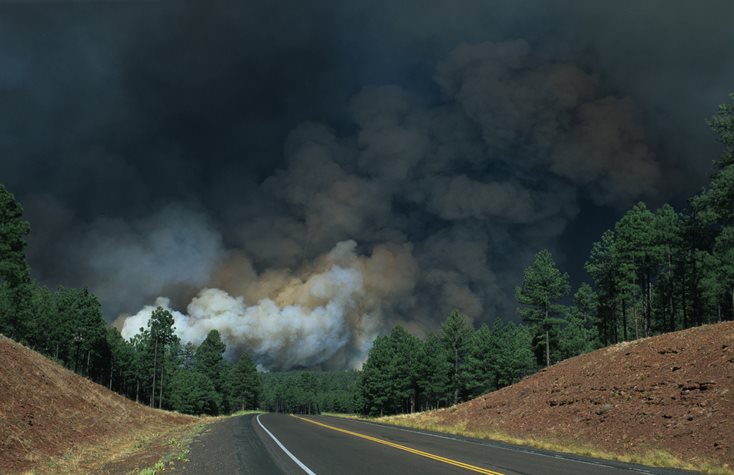Wildfire smoke – how to protect yourself
How to protect yourself against wildfire smoke
You need to safeguard your health from wildfire smoke in addition to the seasonal wildfire-preparation steps you take to protect your property.
 New data from the American Lung Association shows that over the past three years, the Pacific Northwest had some of the worst air quality in the nation during wildfire season, with many counties rating an F for their number of days in the unhealthy range. (You can check your ZIP code here.)
New data from the American Lung Association shows that over the past three years, the Pacific Northwest had some of the worst air quality in the nation during wildfire season, with many counties rating an F for their number of days in the unhealthy range. (You can check your ZIP code here.)
How bad is the air pollution problem in the PNW?
Last year, among cities nationwide, Yakima ranked 9th for short-term particle pollution, with Seattle-Tacoma coming in 16th, Vancouver-Portland at 19th and Bellingham at 24th. In a separate long-term study, researchers looked at the Northwest’s “atmospheric river of smoke” during August (peak wildfire season). They found it boosts levels of carbon monoxide across the U.S., according to the National Center for Atmospheric Research.
Air pollution is unhealthy for anyone, but it’s especially worrisome for children, the elderly, expectant mothers and people with chronic conditions. Serious health effects can range from increased risk for asthma attacks to heart, reproductive system and lung damage.
How can I reduce my exposure to wildfire smoke?
In a PEMCO Poll, about half (51%) of residents said that when wildfire smoke descends on their communities, it negatively impacts their ability to exercise or generally spend time outside, and about one-third (36%) say the smoky air puts their ability to breathe and overall well-being at risk.
While it’s probably impossible to escape the effects of wildfire smoke completely, you can take steps to minimize your exposure:
1. Wear an N95 or KN95 mask. Unlike a cloth or paper mask, they can filter out the most harmful particles in wildfire smoke, thanks to their tight-fitting design and layers of protection. They don’t give you a free pass to carry on as normal during poor air quality, however, since they can’t filter noxious gases you might encounter near a fire.
2. Keep doors and windows closed. Rely on air conditioning, but close the fresh air intake and replace the air filter more often. For added protection, use towels to seal cracks under doors and around windows. In your car, use recirculated rather than fresh air. Once air quality improves, open windows to freshen your home, and change your car’s air filter.
3. Postpone yard chores and exercise. Vacuum the carpet less frequently until smoky conditions pass, since vacuuming can stir up settled particles and send them floating back into the air.
4. Invest in an air cleaner with a HEPA filter. The pleated filters capture and trap particles suspended in the air. When choosing an air cleaner, check its Clean Air Delivery Rating (CADR) to make sure it’s the right size for your room and works to remove smoke. (If you’re buying a filter for your furnace or air conditioning system, always follow manufacturer’s recommendations.) Be mindful of devices advertised as “air purifiers.” They often generate ozone, which is widely recognized as a lung irritant.
5. Check local air quality reports and visibility guides. That’s especially important if you’re thinking of taking a weekend getaway that could land you in a region with poor air quality.
6. Know when to get medical help. A scratchy throat, mild cough and itchy eyes are normal during poor air quality. However, a cough that won’t go away, shortness of breath, fatigue, unusual weakness or chest pain and tightness should be checked out.
You can read our entire wildfire-readiness collection on pemco.com, including how to build a safer campfire.
Share on social media